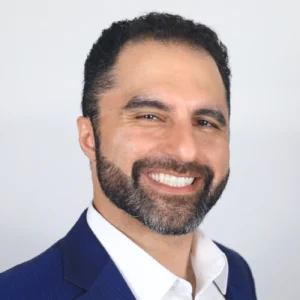The CPA profession is changing — fast. With fewer candidates sitting for the exam and firms scrambling to hire, one question keeps resurfacing: Is it time to rethink the 150 credit hour rule?
States like Georgia, Ohio, and Minnesota are testing new pathways to licensure. What was once an academic debate has now become a real-world issue about the future of the profession.
Why the 150 Credit Rule Was Introduced
The 150-credit rule was designed to raise the bar. It aligned accounting with other professional tracks like law and medicine, aimed to prepare CPAs for more complex work, and supported consistency and reciprocity across states.
Supporters argue that it ensures CPAs are not just technically proficient, but well-rounded and ethically grounded professionals.
My Take: I See Both Sides
I earned a Master’s in Accounting — but not because I wanted to stay in school. My undergraduate degree was in Psychology, and the master’s helped me fill technical gaps and get licensed quickly. And sure, there’s a prestige factor to it.
But prestige shouldn’t come at the cost of accessibility.
The issue isn’t the education. It’s the barriers around it. If 150 credits truly build better CPAs (and in many ways they do), we should be focused on making the path more accessible, not more exclusive.
“Education should elevate — not gatekeep.”
The Case for Change
Critics of the 150-credit requirement point to four key issues:
- Cost and time: It usually means another year of school, more debt, and a delayed start to earning income.
- Lack of diversity: The cost disproportionately affects underrepresented and lower-income students.
- Questionable ROI: There’s little evidence that more credits lead to higher exam pass rates or job performance.
- Fewer candidates: Many believe this rule is one reason fewer people are becoming CPAs.
Real Solutions: Making 150 Credits More Accessible
If the 150-credit requirement is here to stay — and in most states, it is — then we need to make the journey more realistic. Here are some affordable and flexible ways to get there:
- Community college courses: Often overlooked, these are a cost-effective way to earn extra credits at accredited schools.
- Online programs: Schools like LSU and UMGC offer flexible online options that fit around a full-time job.
- Stackable certificates: Many universities now offer graduate certificates that can count toward CPA eligibility and roll into a full degree.
- CLEP exams: In some states, you can test out of general education classes and fast-track your progress.
Far too many people assume a full master’s degree is the only path. The AICPA and state boards should be doing more to broadcast these alternatives — especially to students who can’t afford another $30K in tuition.
Where We Go From Here
The 150-credit requirement doesn’t have to go away, but it does need to evolve. The goal should be education, not exclusion.
Making the journey more transparent, affordable, and flexible could help bring new energy into the CPA pipeline and strengthen the profession for the next generation.
RezzyCheck offers resume reviews, interview prep, and mock interviews to help you break into the profession with confidence.
Start With a Free 15-Minute Call
“Cameron helped me map out a realistic plan to hit 150 credits and get licensed. I didn’t think it was doable — but now I’m on track.”
Looking to build a CPA-friendly resume? Visit our resume review page for expert help.
Hiring for your firm? Learn more about our accounting recruiting solutions.
Book Now - it's free!









